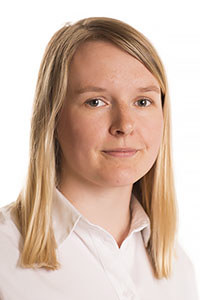Competitive local textile manufacturing
Start date: 2017-01-01
End date: 2017-12-31
Reshoring is an emerging phenomenon which has gained momentum in many industries, including textile and clothing (T/C) due to numerous challenges related to long distance trade and transactions affecting economic sustainability. Vis-à-vis social and environmental sustainability have been affected due to lack of transparency, job loss in western nations, growing environmental issues, etc. These have proved to be major drivers of “bringing back production” initiatives, commonly referred as reshoring.
However, the existing knowledge of reshoring and its main enabler – competitive manufacturing (CM) – is limited, particularly in context to labor-intensive industries like T/C where skilled workforce, digital technology levels, and new business models are comparatively less evolved but are potential game changers in shaping the future of the industry. In addition, a holistic industry perspective of how competency in these domains can concurrently enable reshoring to high-cost regions, like Sjuhärad is still lacking, as it demands new ways of value creation and delivery.
In this context, our project has two goals to address:
-
identify and prioritize the success factors for manufacturing competitively in high-cost regions like Sjuhärad, and explore how can it enable increased reshoring, and
-
assess how can reshored T/C manufacturing be made more feasible.
We adopt various methods to accomplish these goals, such as interactive forecasting method (i. Delphi approach and ii. future ideation workshop) with a panel of industry practitioners. Second we organize an assessment study to analyse what makes reshoring more feasible (i.e. type of products suitable for producing locally, cost-benefit, technology availability, and viable value chain model).
The project aims to deliver a mapping of competitive manufacturing regionally, along with decisive knowledge on required critical success factors, in terms of skill level, process-process technologies and value chain models. In addition, the project aims to clearly suggest dominant reshoring strategies, and necessary improvement efforts, required for the T/C sector manufacturers. The feasibility assessment is expected to explicitly identify the key parameters required to design a successful reshored T/C manufacturing thus enable many pilot studies and commercial initiatives.
Regionally this would result in higher job creation, resilient societal growth and economic prosperity. Exploitation of the key enablers of competitive manufacturing, like advanced digital technologies, 3D printing, and advanced customization would also enable manufacturing excellence and innovation in the region. The project is expected to strengthen University of Borås’s research and education competence by upholding a truly cross-disciplinary research initiative with focus on T/C manufacturing, product design and business models.





